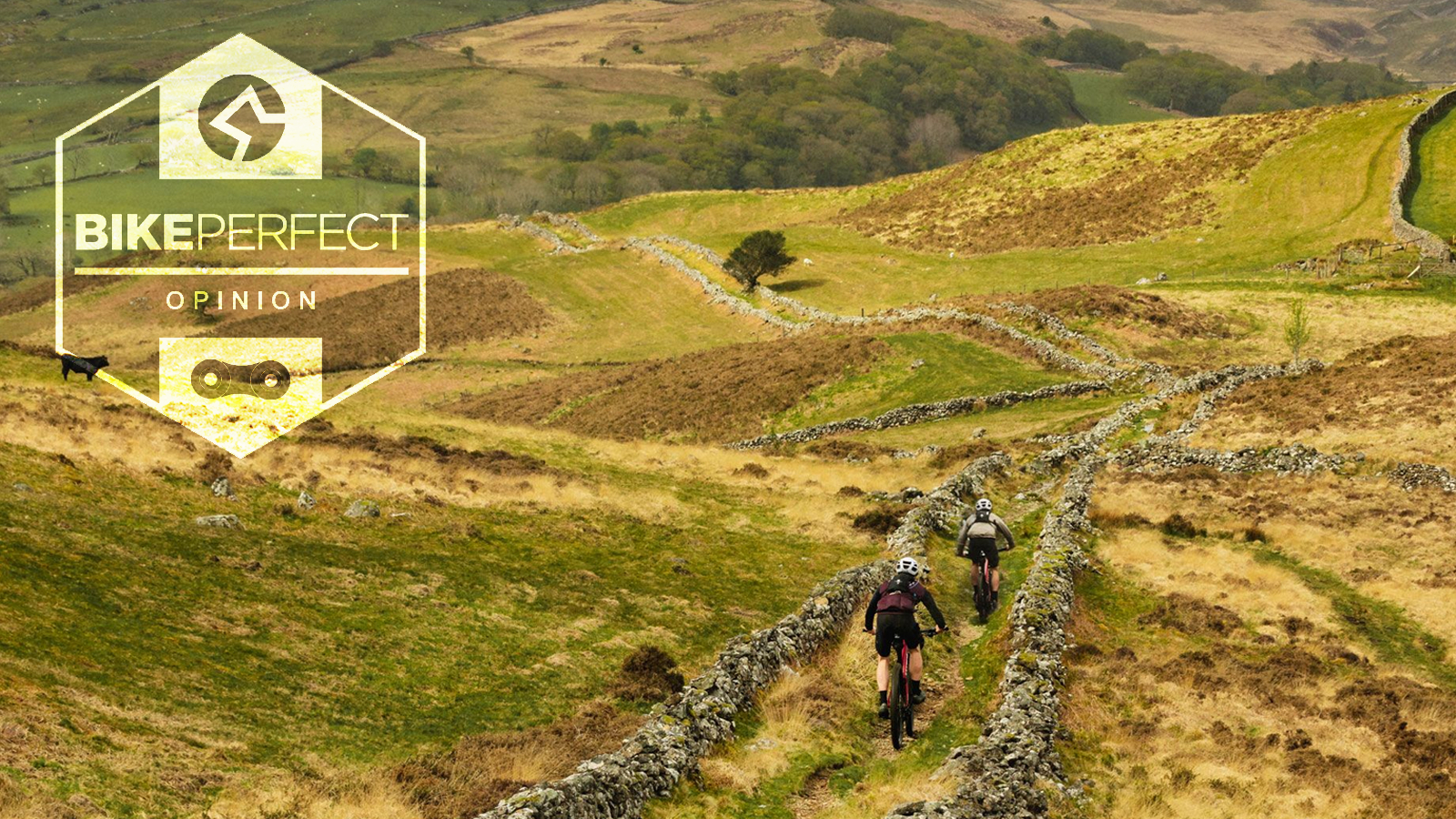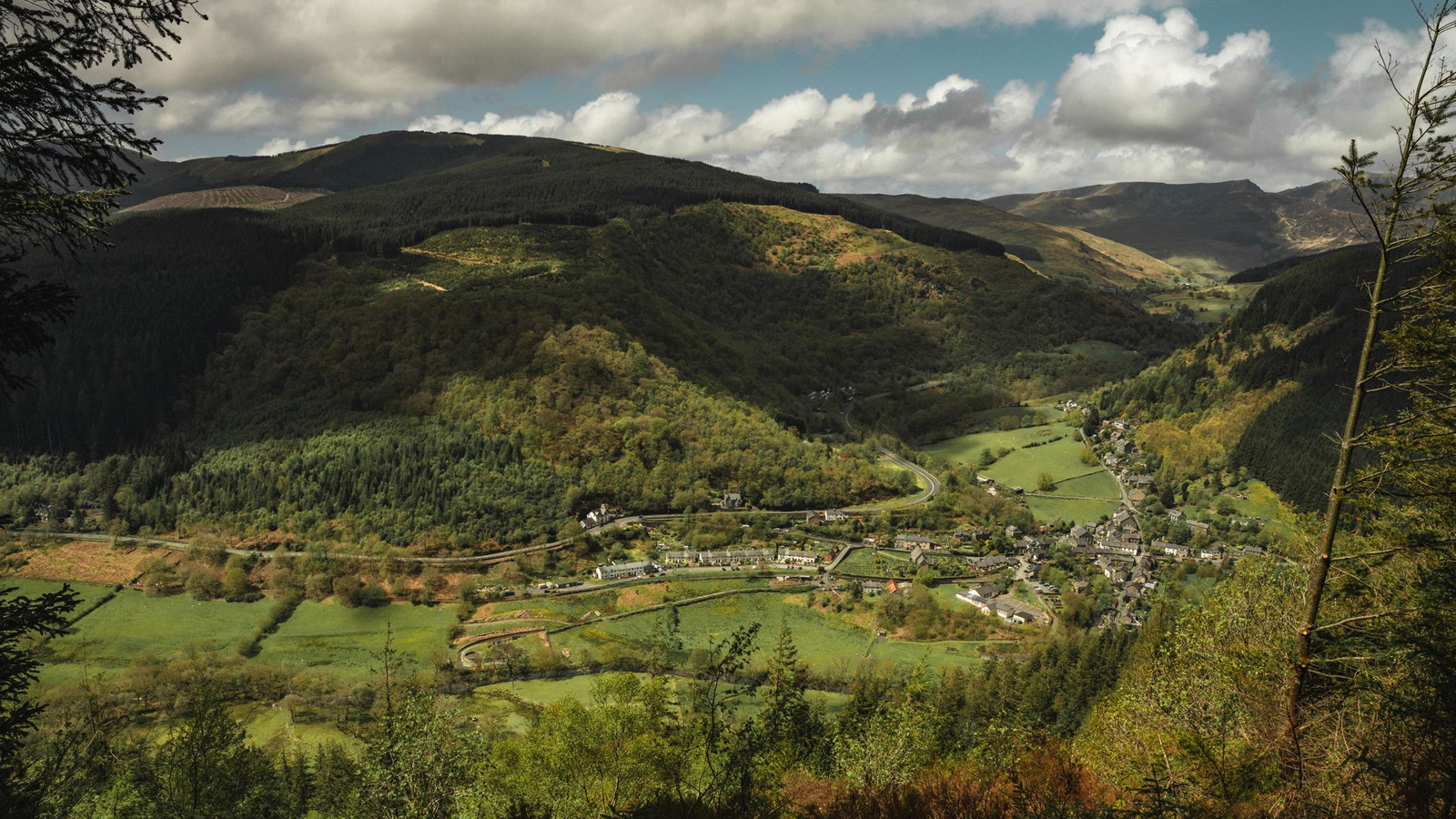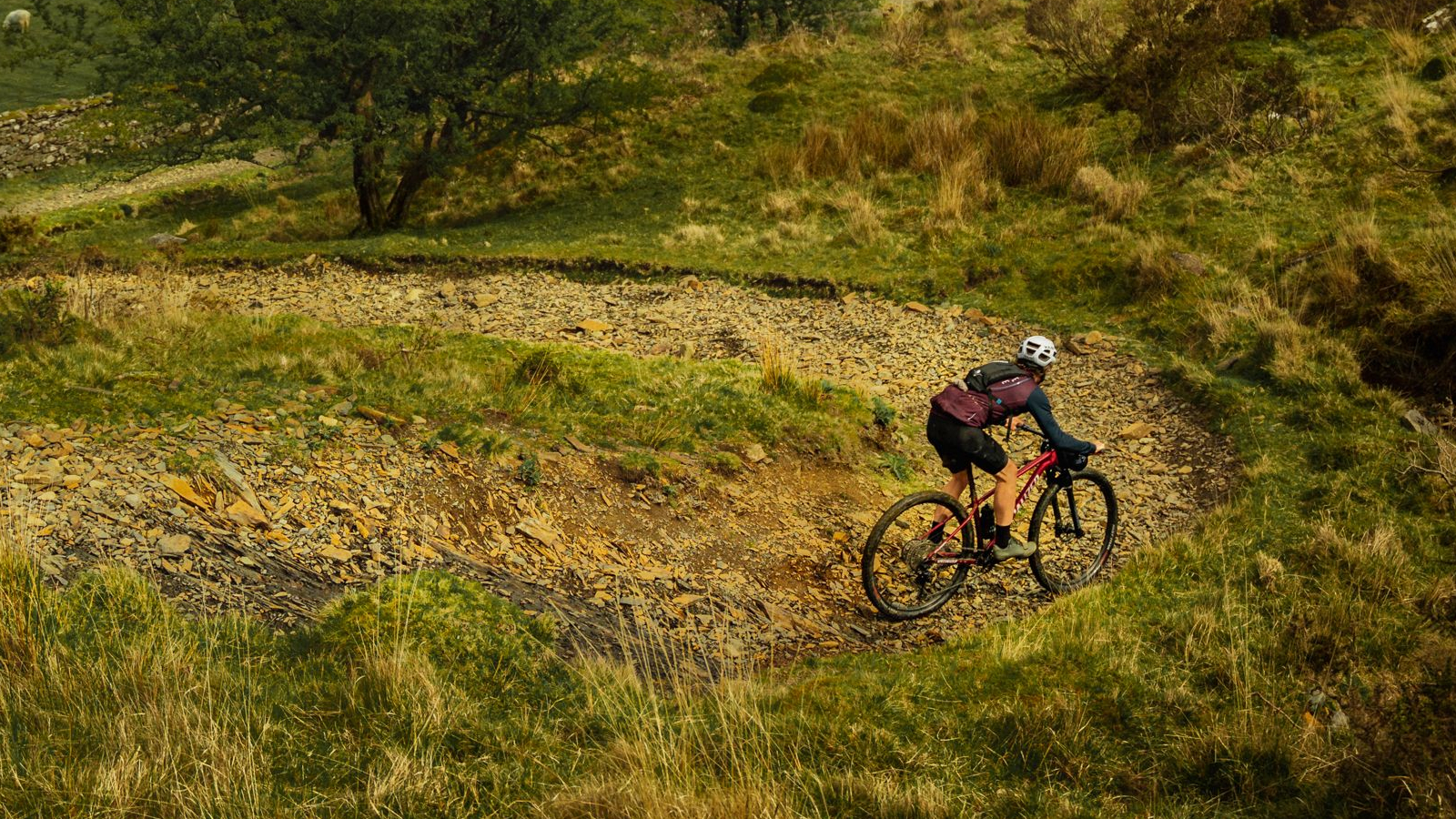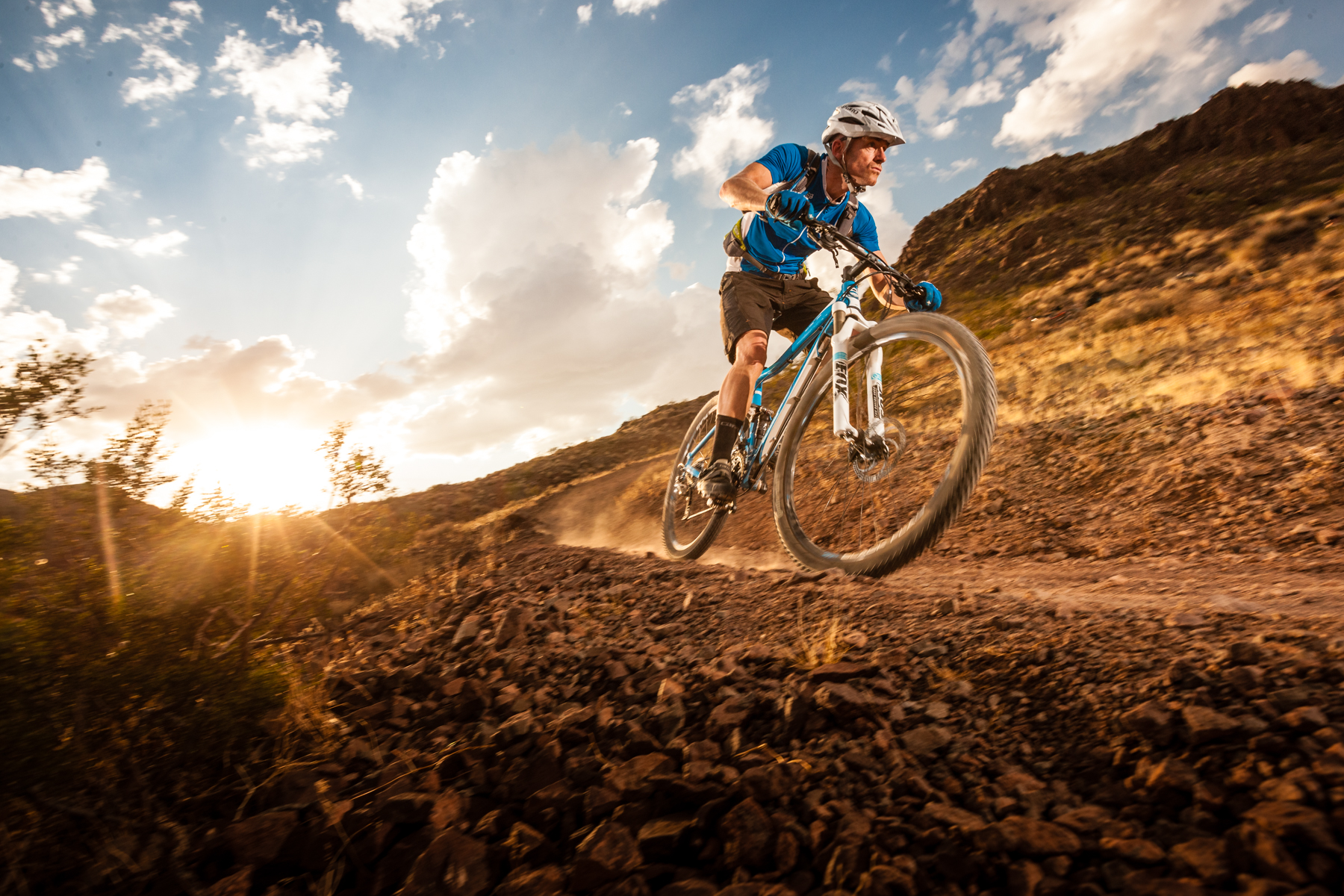Bespoken Word: Going the distance
Mountain bike marathons and stage races are massive pretty much everywhere but the UK, so what is it that stops XC from going the distance here, and is it likely to get better or worse?

Let’s be clear here, there is still a marathon mountain bike racing ‘scene’ including a national championship that took place over a 72mile/115km two-lap course in Northumberland a couple of weeks ago. There are other races dotted around on the calendar too, but you’d have to be prepared to travel all over the country and enter everything from 12 to 24hr or untimed and podium-free challenge events to ride a long format MTB event each month from spring to autumn. Stage races have even more of a sporadic and chequered history over here, and there’s only one headline multi-day event making a blip on the race radar for next year, the three-day Cymru MTB Classic. This is a new event but it’s linked with the legendary South African Absa Cape Epic event and, despite obvious differences between distances covered and the likely weather they’ll experience, category winners at the Cymru MTB Classic will qualify to enter the Cape Epic. With no prior history, prices starting at £899 a pair for ‘basic entry’ (this includes camping at the Dolgellau HQ, plus daily event feeds, massages and a bike wash), and three-day loops from a central base rather than a point-to-point format, it’s already proving controversial.
It’s certainly a far cry from Marathon MTB in other countries as Bike Perfect editor and multi Absa Cape Epic competitor Aaron Borrill discovered when he moved to the UK:
“What people think of as a marathon in the UK was a massive shock. To the point I don’t want to ride my mountain bike anymore. In South Africa, marathon MTB racing is life. The large expanses of open land coupled with landowner buy-in have created a Mecca for world-class racing across terrain that continually changes and is often described as hostile. As a result of this, mountain bike stage racing has become the staple format in South Africa with races such as the Absa Cape Epic taking center stage.
Here marathon rigs are the order of the day - 100mm bar-stem arrangements set up for all-day comfort trump the short-stem direct-steering and flat-pedal brigade seen in the UK. The cultures couldn't be any different. Lap racing? No - instead, it's a point-to-point-style format. Marathon racing has become the gold standard with routes comprising - on average - 90-100km with 2,000-2,800m of vert. There are marathon races every weekend and most of the time South Africans are spoilt for choice and can choose between three or four marathon races per weekend to race. I liked the journey of the marathon format and each race offers a completely different and intrinsically challenging route, too. I hate laps and frankly, lap racing is not marathon, it’s just extended XCO.”
- Cross-country mountain biking: Everything you need to know
- Cross-country mountain bikes: Understanding their anatomy and design blueprints
While South Africa is particularly rich in multi-day stages races with events like the Wines2Whales, Sani2C, Berg and Bush, Joburg2C, Cape Pioneer Trek, Tankwa Trek and more, the South African scene is certainly more reflective of the rest of the world than the UK. Though Enduro and other more gravity-biased formats are growing, marathon cross-country events are still the core of mountain bike racing in Germany, Austria, Italy, Eastern Europe, Australasia, and probably both north and south American too. Having ridden amongst many thousands of other competitors at headline European marathon races like the Roc D’Azur and Salzkammergut Trophy, they are unbelievably big events in terms of scale and the organization behind them.
So while events like Ard Rock and other Enduro series sell out thousands of entries in seconds, why do the National Marathon Championships only get a few hundred riders? Why are previously popular events like Mountain Mayhem 24hr, Sleepless in the Saddle, Dusk ’til Dawn, and the Schwinn, Merida and Scott marathon series now just fond memories of busy, big mileage seasons of summers past? We’ve talked to race organizers and long-term long-distance racers to broaden our perspective on the problems.
Critical mass
Obviously, if there aren’t enough people at an event it’s not popular, but equally, if there aren’t enough events to string together a season, then popularity collapses quickly, too. A handful of events over a year aren’t really worth specifically training for and don’t create any sort of ‘see you next week’ momentum between the have-a-go heroes who were the happy mass of the old marathon race traveling circus.
There’s no incentive to specialize in going long either, whether you’re a top athlete looking for sponsorship or just working hard after work to be better for the next event. This becomes even more of an issue as more and more events had to adopt a ‘challenge’ format without any official results or podiums to get around land-use restrictions where it’s illegal to race or ‘conduct a timed event’ along public rights of way such as bridleways, RUPPs (roads used as public paths) and byways that are normally legal to ride on a bike.
Talking to Tony Fawcett from Scott, who’s been racing MTBs for several decades, the declining spiral is all too clear to see over recent years:
“Obviously COVID-19 has been a big issue but even before that, you’d be lucky to find a marathon event worth doing every week. The events that are on tend to be lap formats like the Marathon champs which aren’t the same as proper single loop challenges, and this year two World Tour roadies turned up to race and bag themselves an easy - for them - National Championship title and the pace was just ridiculous. That can happen with any event but there’s no ‘series family vibe’ like there was with the events we used to sponsor at Scott, so we’re now investing more in local weekday, grassroots XC races that are a lot easier and more enjoyable to be involved with.”

Courses
While many racers won’t realize how hard it is to piece together a route that can be used, let alone one that’ll challenge and entertain riders, it’s obviously a massive issue for organizers. That clearly multiplies the longer you make the route and more landowners you need to sweetheart or pay off to gain access. Occasionally you can be lucky and can squeeze a long enough course onto the land of one owner or secure access to Ministry of Defence training grounds on a suitable lump of moor or mountainside.
Even for a one-day event that tends to reduce variety or mean you have to use a multi-lap format - which Aaron and many others won’t be happy about - but if you’re trying to move from point to point then things spiral into a negotiating, gate monitoring, angry farmer appeasing hell very quickly. The only plus point is that running a mountain bike rather than gravel event means you can fire riders down red or blue grade routes at trail centers (presuming you have the official clearance) or similarly challenging terrain off-road without too much complaint. The downside is that mountain bikers generally take a dim view of even short sections of road or fire road even for linking purposes.
Restless natives
With a few exceptions, local support is generally lacking for events, too. While Aaron says “most South African landowners are mountain bikers themselves and there’s recognition that these races provide a cash injection to local impoverished communities”, long-term event organizer Mike Wilkens told me “it’s very rare for the local community to support the event. Maybe Peebles or Tweed valley get behind things but in most places you’re tolerated at best. Even trying to be as locally sourced as possible with catering and support services it’s still hard work, they just don’t give a rat's ass."
Weather
There’s no denying that weather is a big factor in the popularity of long-format events in the UK. Mountain Mayhem developed an unhealthy reputation for riders clawing across Somme-like landscapes on mud and grass-clogged bikes. I vividly remember my mate Mark setting off to walk a lap of the Sleepless in the Saddle 24hr race with his wheels already in one hand and his bike on his shoulder because of his previous attempt to push it around and crawl up unclimbable slopes on all fours had taken several hours. And that was with a bike he’d put together specifically for the event with a hub gear and 1.8in mud tires for maximum grip and clearance.
The only multi-day event that ever gained any momentum - the Trans Wales Challenge - was largely killed by the year when torrential downpours flooded every stage, freezing and exhausting riders and feeding them a continual stream of dilute sheep poop that saw a lot of them suffer serious stomach issues.

Media
While that did cause some headlines at the time, it was hardly positive coverage and apart from that marathon MTB racing has mostly been ignored by the UK MTB media since the last century. That’s because on a basic ‘instant gratification’ level downhill, dirt jump, freeride, and now enduro tend to create far more exciting and saleable images and content than exhausted, sodden, snotty people in skin suits. Especially if there’s not even a podium to look hauntedly happy on at the end. Apart from enduro most of them are corralled into small areas that are easier to cover with photographers and cameras, too.
Speaking to Mike, the lack of media coverage is at the heart of many issues with making marathons or long-format races a success. If there’s no media coverage it’s harder to get entries. It’s harder for those who enter to get sponsorship or support without media coverage and it’s harder for the event organizers to get sponsors and support, too. In other words, without media supplying the oxygen of publicity it’s pretty hard to keep the flame alive.
As Mike ruefully told us “There are just too many other things for potential sponsors to spend their money on and something like an event can’t be quantified in the same way as an ad on Facebook. The other problem as an organizer is that people massively overestimate how much these events bring in but they also massively underestimate the costs involved and the fact that all that money has to be spent in advance of the event. Yes back when we had the Schwinn events with sponsorship from Chain Reaction we made some money, but now the financial risk of putting on an event is terrifying. It’s a huge amount of time and energy to invest to hopefully just about break-even and you just wouldn’t think of doing it unless it was for the love of it.”
Alternatives
While trying to create an enjoyable, attractive, financially viable marathon event is increasingly hard there are all sorts of new ways that riders can create a challenge for themselves in fresh riding areas in a way that just wasn’t possible twenty years ago. Apps like Komoot, Strava etc. and innumerable websites offer up masses of route opportunities and the community that grew on overnight campsites has now transferred online.
As a result, the real die-hard long-distance riders are now tackling grassroots, zero-fuss events like the Highland Trail 550 or just heading out to attack FKT (Fastest Known Time) targets on classic routes like the South Downs Way. Not only can these individual attempts be adjusted to training schedules, weather or unforeseen circumstances like fixed events can’t, they can also be choreographed better for coverage, as Rab Wardell proved with his super-popular YouTube video of his successful FKT attack on the West Highland Way this summer.
In today’s world video and social media likes mean a lot more to sponsors than standing on a box in a forestry car park and you can have your own after-event party or proper recovery regime rather than standing in line for soggy pasta and a damp marquee.
While established epic riders are increasingly forging ahead with their own challenges, fresh riders keen on going the distance are now being tempted by an entirely new way to consume off-road adventure. As we’ve said several times recently, gravel also comes with a lot more advantages than just being fashionable right now. A more sociable rather than results-focused vibe and lower levels of technical challenge make gravel events much less intimidating to enter and easier to set up and sell for organizers, too. Interestingly they’ve bought a lot of old-school MTBers who I haven’t seen since the 90s back into the events scene, too.
What’s the future then?
Judging by their fitness and speed these old pals have clearly been doing some serious riding without needing the MTB race scene to focus their targeting and that’s the more happy and hopeful side of this look into marathon riding.
While there might not be a regular series and most of the flagship events are now distant memories there are still loads of riders going out and having an awesome time doing epic things on their mountain bikes. Whether its FKT challenges, grass routes events with no real infrastructure beyond a start and finish point with soup and brew waiting and onscreen tracker dots as the leader board, Strava based competitions or the rarely spoken of but still very popular world of MTB Orienteering where you set your own time-limited course and challenge from a series of options on a map like a pedaling pirate.
But perhaps the real hope for the future of marathon mountain biking is that all those wild-eyed, excited, laughing riders we see at the bottom of the more challenging sections of gravel races start wanting a higher percentage of those thrills in their events. So will we see drop bars swapped for flat bars, Rudy’s become SIDS and all the “what tires” questions on forums start being about lightweight 29er rubber, rather than 700c vs 650b?

Guy Kesteven has been working on Bike Perfect since its launch in 2019. He started writing and testing for bike mags in 1996. Since then he’s written several million words about several thousand test bikes and a ridiculous amount of riding gear. He’s also penned a handful of bike-related books and he reviews MTBs over on YouTube.
Current rides: Cervelo ZFS-5, Specialized Chisel, custom Nicolai enduro tandem, Landescape/Swallow custom gravel tandem
Height: 180cm
Weight: 69kg
